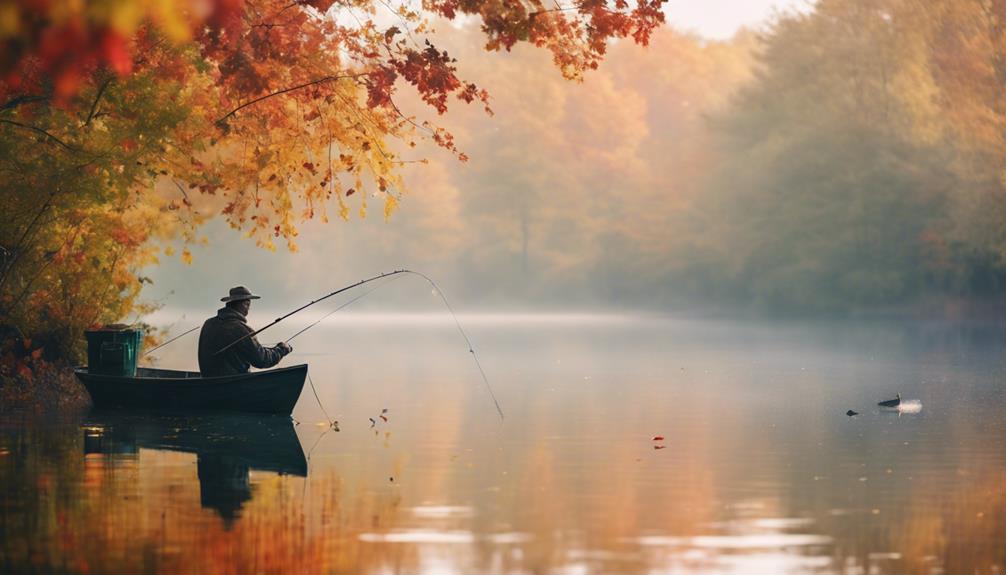Fishing is a beloved pastime for many, offering relaxation, excitement, and a connection to nature. However, before casting a line, it’s crucial to understand the legalities surrounding the activity. One of the most vital components of responsible fishing is obtaining a fishing permit. In this article, we will explore what a fishing permit is, its importance, types, how to obtain one, and much more.
What Is a Fishing Permit?
A fishing permit is a legal document that grants individuals the right to fish in specific waters. These permits are often issued by state or local governments and are designed to regulate fishing activities, ensuring sustainable fish populations and protecting aquatic ecosystems. Each region may have different requirements and regulations concerning fishing permits, making it essential for anglers to familiarize themselves with local laws.
Why Is a Fishing Permit Necessary?
Obtaining a fishing permit is crucial for several reasons. Firstly, it helps maintain fish populations by regulating the number of anglers and the types of fish that can be caught. Overfishing can lead to the depletion of fish stocks, which is detrimental to both the environment and the fishing community. Secondly, fishing permits often provide funding for conservation efforts, helping to preserve aquatic habitats and promote responsible fishing practices. In summary, a fishing permit is not just a piece of paper; it is a tool for ensuring the health of our waterways and fish populations.
Types of Fishing Permits
Fishing permits come in various forms, each catering to different fishing activities and locations. The most common types include:
1. Recreational Fishing Permits: These are issued for individuals who fish for pleasure and not for commercial purposes. They are often required for both freshwater and saltwater fishing.
2. Commercial Fishing Licenses: These permits are necessary for individuals or businesses engaged in fishing for profit. The regulations for commercial permits can be more stringent, often requiring compliance with quotas and reporting.
3. Specialty Permits: Some regions may offer specialty permits for specific activities like ice fishing, fly fishing, or fishing for certain species. These permits are intended for anglers who wish to target specific types of fish or engage in unique fishing methods.
4. Temporary Fishing Permits: These permits are ideal for tourists or occasional anglers who may not fish regularly. They typically allow fishing for a limited period, making them a convenient option for visiting anglers.
How to Obtain a Fishing Permit
Obtaining a fishing permit is a straightforward process, but it may vary depending on your location. Here are the general steps to acquire one:
1. Research Local Regulations: Start by checking the local wildlife agency or fisheries department’s website for specific fishing regulations in your area. This will provide information on the types of permits available and any associated fees.
2. Choose the Right Permit: Based on your fishing needs, select the appropriate permit type. Ensure you understand the limits and regulations that come with it.
3. Complete the Application Process: Many jurisdictions offer online applications for fishing permits. Fill out the necessary forms, providing accurate personal information and details about your fishing plans.
4. Pay the Required Fees: Fishing permits usually come with a fee. Payment methods may vary, so check the website for acceptable payment options.
5. Receive Your Permit: Once your application is approved and payment is processed, you will receive your fishing permit. Keep it with you whenever you go fishing, as you may be asked to present it to wildlife officials.
Common Misconceptions About Fishing Permits
There are several misconceptions surrounding fishing permits that can lead to confusion among anglers. One common myth is that fishing permits are only necessary for certain bodies of water, when in fact, most freshwater and saltwater fishing activities require a permit regardless of location. Another misconception is that permits are only for professional anglers; however, recreational fishers also need permits to comply with local regulations. It’s essential to educate yourself on these misconceptions to avoid potential fines or legal issues while fishing.
The Benefits of Having a Fishing Permit
Having a fishing permit comes with numerous benefits beyond legal compliance. Firstly, it allows you to fish in a variety of locations, expanding your fishing opportunities. Secondly, many permits provide access to exclusive fishing areas that are not open to the general public. Additionally, by obtaining a fishing permit, you contribute to conservation efforts and help protect the environment, ensuring that future generations can enjoy fishing as much as you do. Lastly, being a licensed angler fosters a sense of community among fellow fishers, promoting responsible and ethical fishing practices.
Consequences of Fishing Without a Permit
Fishing without a valid permit can lead to severe consequences. Most jurisdictions impose hefty fines for fishing without a permit, which can vary significantly depending on the state and the severity of the offense. In some cases, repeat offenders may face criminal charges, leading to even more severe penalties, including community service or fishing bans. Additionally, fishing without a permit undermines conservation efforts, putting strain on fish populations and aquatic ecosystems. Therefore, it is crucial to always fish responsibly and ensure you have the necessary permits before heading out.
Conclusion: The Importance of Fishing Permits
In conclusion, understanding what a fishing permit is and its significance is essential for anyone looking to enjoy fishing legally and responsibly. From contributing to conservation efforts to expanding your fishing opportunities, permits play a crucial role in maintaining healthy aquatic ecosystems. Always ensure you have the necessary permits before casting your line, and educate yourself on local regulations to enhance your fishing experience. By doing so, you not only protect your rights as an angler but also contribute to the sustainability of our natural resources for future generations. Happy fishing!
